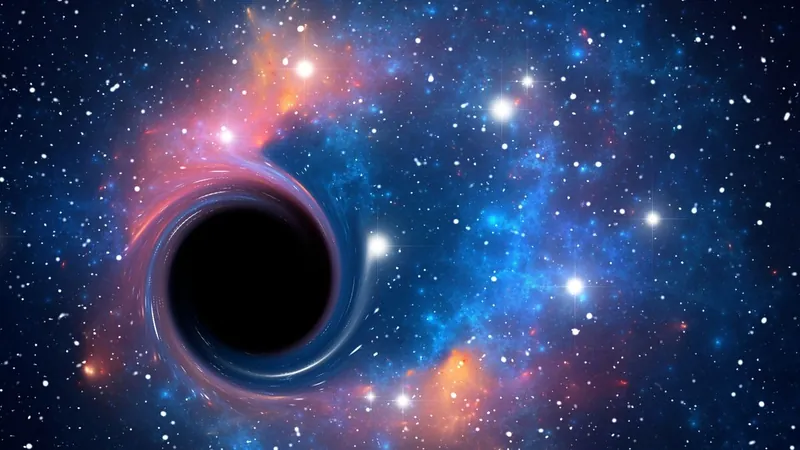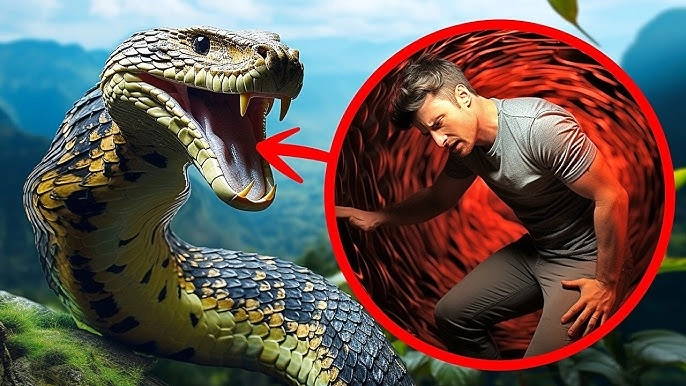
10 Astonishing Black Hole Discoveries That Took the World by Storm in 2024
2024-12-29
Author: Sarah
Black holes are colossal, enigmatic entities in the universe, exhibiting gravitational forces so intense that they devour everything that comes too close, warping the very fabric of space-time.
Yet despite their terrifying nature, these cosmic behemoths have captivated scientists and astronomers alike, eager to unlock the mysteries of their role in the universe—from galaxy formation to the quest for a unified theory of gravity. Here’s a rundown of the most groundbreaking black hole discoveries made this year.
1. Rare 'Missing Link' Black Hole Discovered in the Milky Way
Astronomers have identified a potential intermediate black hole hiding in the IRS 13 star cluster, located just a tenth of a light-year from Sagittarius A*, the supermassive black hole at the center of our galaxy. This discovery could illuminate the gap in our understanding of how smaller black holes evolve into their supermassive counterparts.
2. A Gluttonous Black Hole Feeding at Unbelievable Speeds
The James Webb Space Telescope unveiled a supermassive black hole named LID-568, consuming materials at a staggering rate—40 times greater than the theoretical limit known as the Eddington limit. This extraordinary feeding frenzy occurred just 1.5 billion years after the Big Bang, providing insights into how massive black holes formed so early in the universe's history.
3. The Origin of 'Impossible' Black Holes Explained
Following the discovery of LID-568, researchers proposed a groundbreaking theory suggesting that black holes might originate from rapidly collapsing gas pockets rather than from dying stars, which has been the prevalent thought. These primordial black holes could have merged to grow into the supermassive black holes we observe today.
4. The Shadowy Presence of Tiny Black Holes
Theoretical physicists considered the possibility that tiny primordial black holes could still be present, potentially passing through planets and even our bodies without notice, leaving only faint signs. If confirmed, these elusive entities could explain a significant portion of the universe's missing matter.
5. Gigantic Black Hole Jets Stretching for Light-Years
Astronomers have discovered the longest black hole jets ever observed, with one pair, known as Porphyrion, measuring 23 million light-years long—comparable to 140 Milky Way galaxies laid side by side. These jets demonstrate incredibly energetic dynamics at play in the cosmos.
6. Mysterious Explosions Linked to Black Hole Jet Activity
In a remarkable observation, scientists found that a black hole jet is causing nearby stars to erupt in nova explosions. This unexpected discovery raises questions about the influence of black hole jets on their surroundings and the mechanics involved in such stellar events.
7. Understanding Black Hole 'Heartbeats'
Researchers have delved into the bizarre phenomenon of black hole heartbeats, wherein pulsed light signals are detected amidst X-ray flares. These pulses may be attributed to shock waves produced while black holes consume their surroundings, presenting another layer of complexity in black hole studies.
8. Revealing the Secrets of Sagittarius A*
Using the Event Horizon Telescope, scientists unraveled the mysteries surrounding the spinning anomalies of Sagittarius A*. It was determined that the galactic behemoth likely formed from a cataclysmic collision between two massive black holes, causing its lopsided rotation.
9. First-Ever Black Hole Triple System Discovered
For the first time, astronomers have detected a black hole embanked by not one, but two stars, marking the discovery of a triple black hole system. This observation has implications for our understanding of how black holes can form directly from gas clouds rather than solely through stellar collapse.
10. A Dormant Black Hole Awakens
In a rare observation, a long-dormant black hole has shown signs of reactivation, possibly due to the accumulation of new material or the remnant light from a star it recently consumed. This discovery could reshape our understanding of black hole behavior and lifecycle transitions.
These discoveries not only deepen our understanding of black holes but also challenge existing theories and raise new questions, ensuring that black holes remain at the forefront of cosmic research for years to come.


 Brasil (PT)
Brasil (PT)
 Canada (EN)
Canada (EN)
 Chile (ES)
Chile (ES)
 Česko (CS)
Česko (CS)
 대한민국 (KO)
대한민국 (KO)
 España (ES)
España (ES)
 France (FR)
France (FR)
 Hong Kong (EN)
Hong Kong (EN)
 Italia (IT)
Italia (IT)
 日本 (JA)
日本 (JA)
 Magyarország (HU)
Magyarország (HU)
 Norge (NO)
Norge (NO)
 Polska (PL)
Polska (PL)
 Schweiz (DE)
Schweiz (DE)
 Singapore (EN)
Singapore (EN)
 Sverige (SV)
Sverige (SV)
 Suomi (FI)
Suomi (FI)
 Türkiye (TR)
Türkiye (TR)
 الإمارات العربية المتحدة (AR)
الإمارات العربية المتحدة (AR)